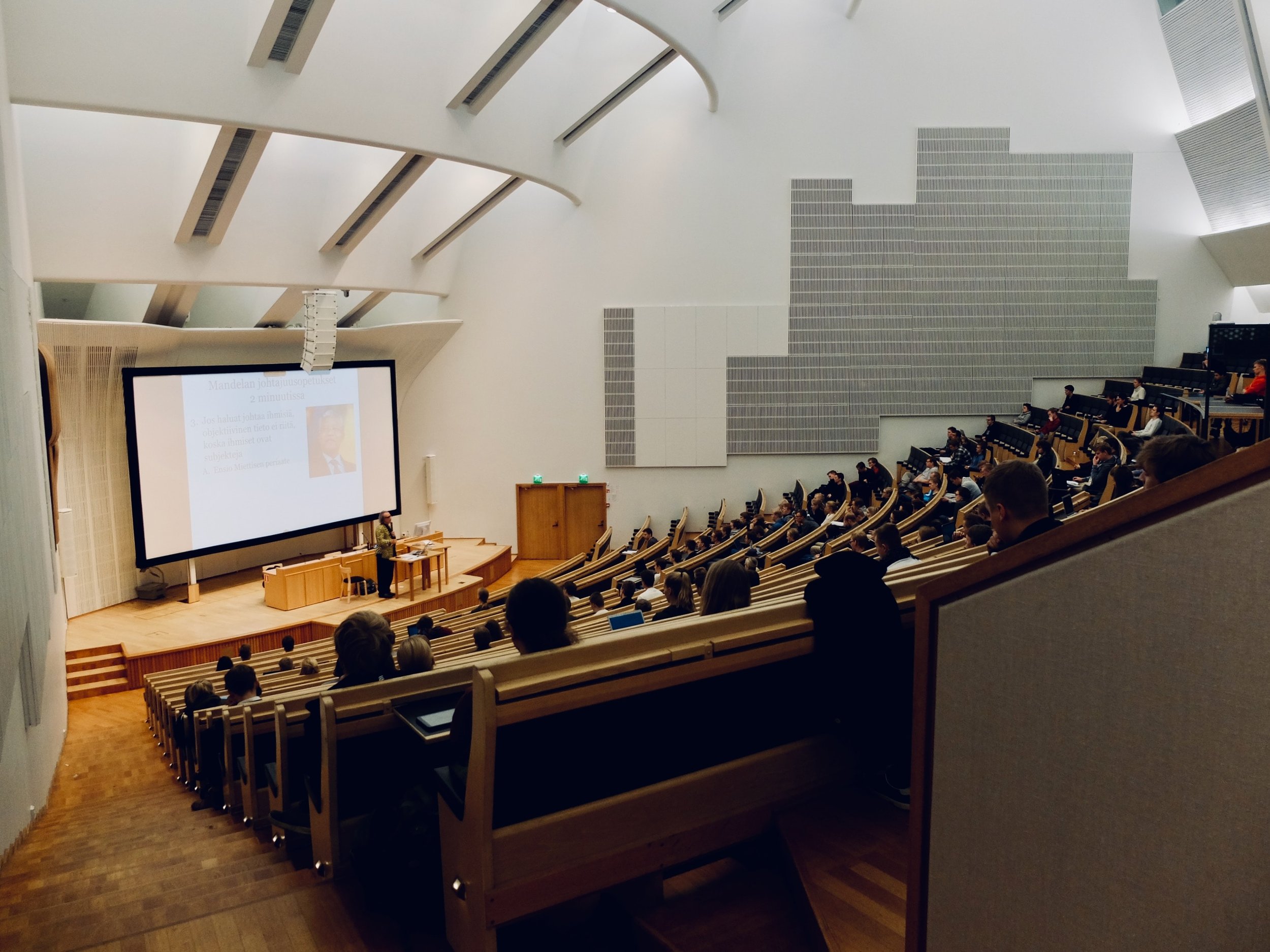Inclusive Courses to Attend this Fall
Written by Caitlyn Skelhorn,
Revisited by Lainee Leblanc-Smith
Thumbnail Photo by Heather Mount on Unsplash
For many students, one of the best aspects of University is the freedom to choose your courses. You can choose a major you appreciate and electives from various departments. This flexibility enables students to study subjects they have interest in, resulting in a more enjoyable education overall. If you’re looking for some open-minded courses to learn and understand diversity, gender, sexuality, and more, SMU offers a variety of courses that cover these essential topics! This article will go over some of these courses in depth and others available to help you pick your classes for the fall.
(Please note that this outline and the required course materials may vary with different instructors, course curriculum revisions, and more.)
Photo by Heather Mount on Unsplash
SMU has a Women, Gender, and Sexuality Studies (WGSS) minor program that allows students to take four core courses: Introduction to Women and Gender Studies, Foundations in Sexuality Studies, Interdisciplinary studies in WGSS, and Advanced Studies in WGSS. In addition, students choose electives from a list of courses that complement the WGSS program to satisfy the minor requirements. The list includes courses from the departments of Anthropology, English, Philosophy, Political Science, Psychology, and more.
One of the most important courses to feature in-depth is Foundations in Sexuality Studies (WGSS 2100), a 2000-level course which follows Introduction to Women and Gender Studies (WGSS 1200). This course tackles frequent questions, such as: "What is sexuality, and what does it mean to embrace or to have one?" and "how do we understand and study sexuality?".
While taking this course, students will be tasked to write information papers on their opinions to show their understanding of the course material. There are also four open-book tests after each section of the course and an opportunity to earn two bonus points towards the final grade. This course does not require a textbook, as all reading requirements are posted on Brightspace. After taking Foundations in Gender and Sexuality Studies, students should be able to explain how sex, sexuality, and gender intertwine with society and different cultures. They will also be able to understand the social construct and power dynamics of sex and sexuality.
Gender, Sexuality, and Religion (RELS 2333), a second-year Religion department course, is another course at SMU that focuses on LGBTQ+ content. This course investigates gender and sexuality from various religious and cultural perspectives. This course also examines how the LGBTQ+ community has fought against the strict religious ideologies that have attempted to oppress them. Students have access to all required readings for the course, and the grade is weighed between different writing assignments throughout the semester.
The Psychology of Gender (PSYC/WMST 2550) is another course that concentrates on LGBTQ+ content. It is a 2000-level Psychology group B course that explores the biological and social aspects of gender research. This course introduces students to gender in terms of cognition and behaviour, and the impact of gender roles on various life factors, such as intimate relationships and mental health. After taking the Psychology of Gender, students will better understand the study of gender, the diversity of gender across cultures, and the impact of gender on different aspects of our lives. The course is graded using two non-cumulative tests, weekly quizzes, and regular reflections based on MEN by Scene on Radio, a radio podcast in which the hosts discuss sexism, patriarchy, misogyny, and the male-dominated world. You can even choose to earn three bonus points towards your final grade, by participating in research through the SMU SONA system!
These three courses are just some of the options available at SMU that encompass LGBTQ+ topics; more include:
Language and Gender (English), Sex and Sexuality (Philosophy), and Philosophical Issues in Feminism (Philosophy) are examples of 1000 and 2000-level courses.
Gender in Atlantic Canada (Atlantic Canada Studies), Sex, Gender, and Society (Anthropology), Love and Sexuality in the Ancient World (Classics), History of Gender, Feminism, and Sexuality in Canada (History), and Politics and Sex (Political Science) are a few 3000-level courses .
4000-level courses are available in Criminology, English, Social Justice, and Community Studies programs.
Admission to these courses could include some prerequisites and major requirements. Reach out to Arts Advising or Science Advising for help with prerequisites and degree planning.
SMU provides a wide range of courses that cover content related to LGBTQ+ issues. These courses can fulfil credits in the arts, humanities, and science. This article is, by no means, an exhaustive list of classes; students can find additional options in the academic calendar and through the Women, Gender, and Sexuality Studies department. SMU provides students with the opportunity to better understand and appreciate LGBTQ+ history, safety, and culture by offering a variety of LGBTQ+-related courses. While not every course operates yearly, there are numerous opportunities to learn about LGBTQ+ issues throughout your degree program, and new LGBTQ+ courses may pop up as well! You can frequently check what courses are available to you to stay up to date.


